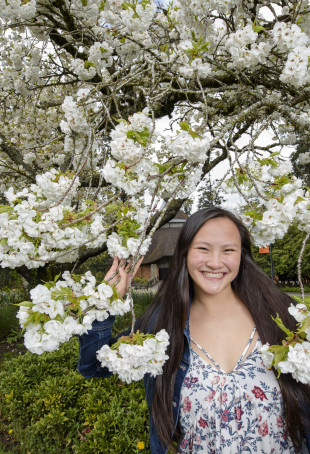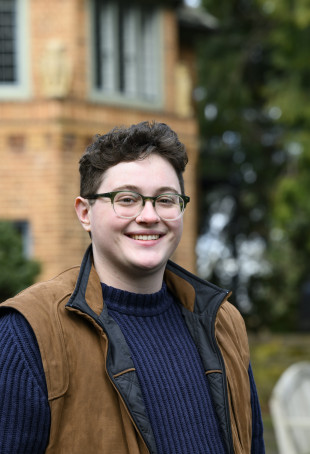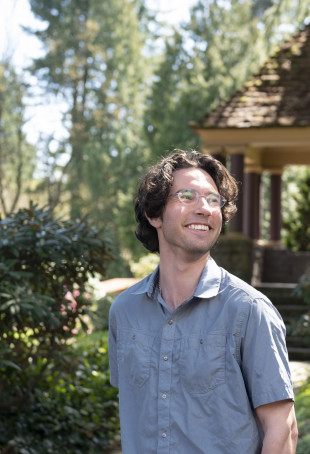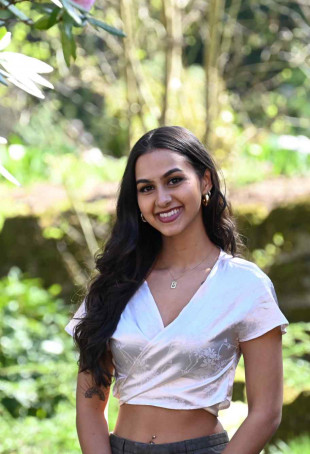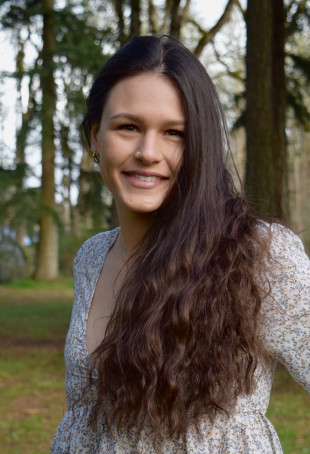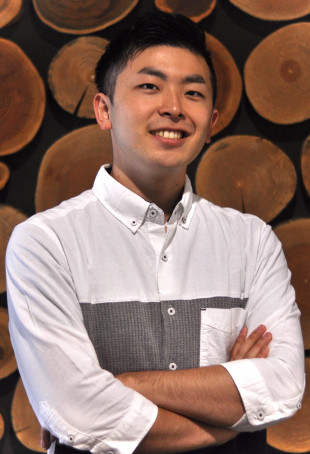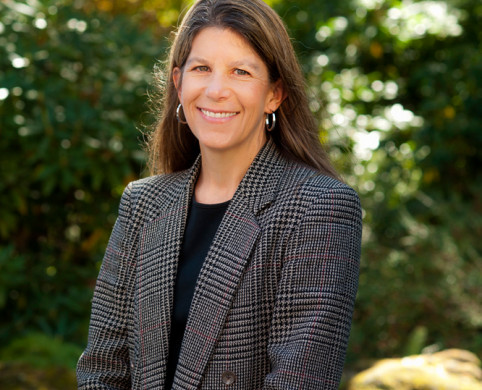- <a href="/live/image/gid/83/width/650/86534_SOAN_main_image.jpg" class="lw_preview_image lw_disable_preview" tabindex="-1"><picture class="lw_image lw_image86534"> <source type="image/jpeg" media="(max-width: 500px)" srcset="/live/image/gid/83/width/500/height/479/crop/1/86534_SOAN_main_image.rev.1607736302.jpg 1x, /live/image/scale/2x/gid/83/width/500/height/479/crop/1/86534_SOAN_main_image.rev.1607736302.jpg 2x"/> <source type="image/jpeg" media="(min-width: 501px)" srcset="/live/image/gid/83/width/720/height/690/crop/1/86534_SOAN_main_image.rev.1607736302.jpg 1x"/> <img src="/live/image/gid/83/width/720/height/690/crop/1/86534_SOAN_main_image.rev.1607736302.jpg" alt="Maryann Bylander, associate professor of sociology, hosts students during her office hours. " width="720" height="690" data-max-w="1150" data-max-h="1200" loading="lazy"/> </picture> </a><div class="hero-split_image_caption collapsable-caption"> Maryann Bylander, associate professor of sociology, hosts students during her office hours. </div>
Sociology and Anthropology
When you choose a major in sociology and anthropology, you become a member of an enthusiastic intellectual community dedicated to the study of the social and cultural processes that shape our contemporary world. You will develop the thinking tools, research skills, and social ethics that prepare you to understand the world and act in it.
Why Choose a Degree in Sociology and Anthropology?
Our program builds on the overlapping concerns and distinctive strengths of our two disciplines: sociology and anthropology. Rather than establishing separate tracks, we follow an integrated curriculum dedicated to providing solid preparation in the theories and methodologies of these intersecting fields. You will join in critical investigation of pressing issues of the day: capitalism, environmental sustainability, food systems, health care, migration, nationalism, religious commitment, social injustice, technological innovation, tourism, violence and suffering, and more. Our courses are attuned to how these matters impact the everyday lives of people globally.
We also believe in collaborating with students on research projects—whether through classes during the academic year, a paid humanities research summer program, or both—and helping them find and secure internships or practica in Portland and beyond. Our students graduate with research, writing, and analytical skills that equip them well for a wide range of professional endeavors and graduate programs.
What You’ll Study
Our curriculum stresses the relationship between cultural formations and social structures set in historical context. Courses draw heavily on cross-cultural examples, focusing on areas of faculty expertise in Africa, Asia, Latin America, the Middle East, and North America. The study of inequality across race, gender, class, and other forms of social difference provides a critical point of conjuncture for our joint curriculum. Our faculty are strongly committed to teaching a variety of methodologies and perspectives, including ethnographic fieldwork and interviewing, statistics and survey research techniques, textual and discourse analysis, historical methods, and computer-mediated modes of inquiry. This approach, which is in keeping with recent trends in both sociology and anthropology, provides a strong foundation for engaged student research that culminates in a senior thesis project.
We believe in collaborating with students on research projects around the world—whether through classes during the academic year, a paid humanities research summer program, both, or other channels—and helping them find and secure internships in Portland and beyond. Recent internships included placements with an Oregon senator’s office, immigration and refugee community-organizing groups, a local newspaper, and National Geographic. Many of our students also earn course credit while on an overseas program, and draw on their experience abroad in their senior thesis project.
Outside the classroom, our faculty and students come together for barbecues, hikes, pizza dinners, brunches, research presentations, and other departmental events throughout the year.
Complement Your Education With One of These Minors
The most popular minors for our sociology and anthropology majors are entrepreneurial leadership and innovation, ethnic studies, and gender studies.
What Students Are Saying About Lewis & Clark
- Sabrina Murray BA ’21
Working with IME as a peer education coordinator has taught me so many skills, including public speaking and networking with faculty and students. IME has also given me a community that surrounds me with love and support.
Sociology and Anthropology | University Place, WashingtonMore about Sabrina - Eli Bricknell ’24
My favorite classes have been Feminist Theory and Decolonizing Anthropology. Feminist Theory was amazing because we were able to have really exciting and thought-provoking discussions. Decolonizing Anthropology was a really great class, and the teachings have stuck with me.
Sociology and Anthropology | Gender Studies | Seattle, Washington; Kalamazoo, MichiganMore about Eli - Cooper Kroll BA ’24
Sociology and anthropology are at a confluence point between the sciences and humanities, which allows me to engage with both perspectives. This multidimensional perspective is a very thought-provoking way to approach just about any issue and keeps me on my toes.
Sociology and Anthropology | Seattle, WashingtonMore about Cooper
What Can You Do With a Degree in Sociology and Anthropology?
Our alumni use their BA in sociology and anthropology to pursue graduate studies and professional work in a wildly diverse set of fields that range from medicine to urban planning, law to secondary education, public policy to cultural studies.
Dedicated Faculty
Our expert professors are your expert mentors. You will learn directly from faculty (no graduate assistants here!) that are nationally recognized in their fields of study and who love to work with and learn from their students. Your professors will inspire you to be a thoughtful and passionate participant in a diverse world. Your small classes will support you as you explore new ideas, find your voice, and speak your truth.
- 1 of 7
L&C is one of seven Oregon schools to make the national Colleges of Distinction list in 2023–24.
- Top
For the seventh time in 10 years, Lewis & Clark has been named a Fulbright U.S. Student Program Top Producing Institution for 2023–24.
- 54
nationalities represented in our undergraduate student body
- 10%
of our students are from countries other than the U.S.
- 12:1
Lewis & Clark College has a student-to-faculty ratio of 12:1.
Invest in Yourself
A private liberal arts education is often more affordable than you think. Last year, Lewis & Clark distributed over $74 million in assistance from institutional, federal, state, and private sources. Additionally, we’re so confident that our first-year students will graduate with their bachelor of arts degree in four years that if you don’t, we’ll cover the extra semester of tuition.
Find Your People
Students can join a variety of student-run organizations that relate to their sociology and anthropology major, like Students for Transformative Action, Abolition, Resilience (STAAR). Don’t see what you’re looking for on the club list? Start something new and build your own community of peers!
Where Lewis & Clark Will Take You
- Shalini Hanstad
The most important thing I learned at Lewis & Clark was the transformative power of community.
Sociology and Anthropology | Ethnic Studies | Seattle, Washington and Bangalore, IndiaMore about Shalini - Hannah Singleton BA ’21
My education at Lewis & Clark allowed me to build the foundation to reach this height in my career as a young professional, and supported me in my belief that I could achieve it.
Sociology and Anthropology; French Studies | Corvallis, OregonMore about Hannah - Minami Yamauchi BA ’22
The rigorous thesis process definitely prepared me for graduate school. It equipped me with important research skills and familiarized me with a certain expectation of a scholarly study, but also it helped me clarify my exact academic interest to pursue in my master’s degree.
Sociology and Anthropology | Hispanic Studies | Tochigi, JapanMore about Minami
